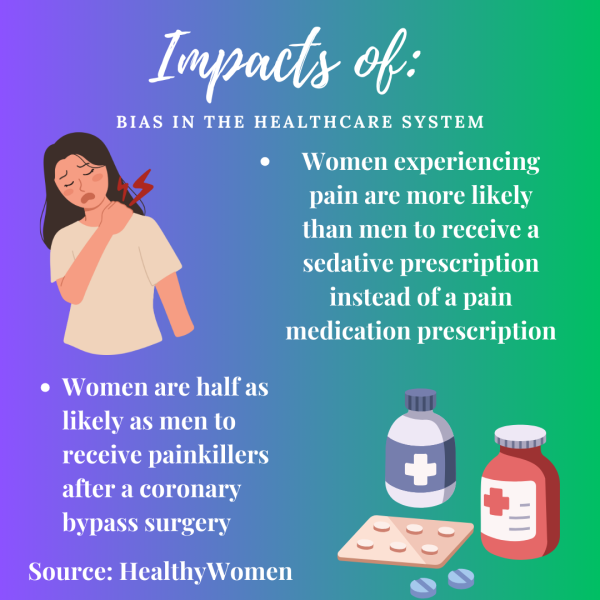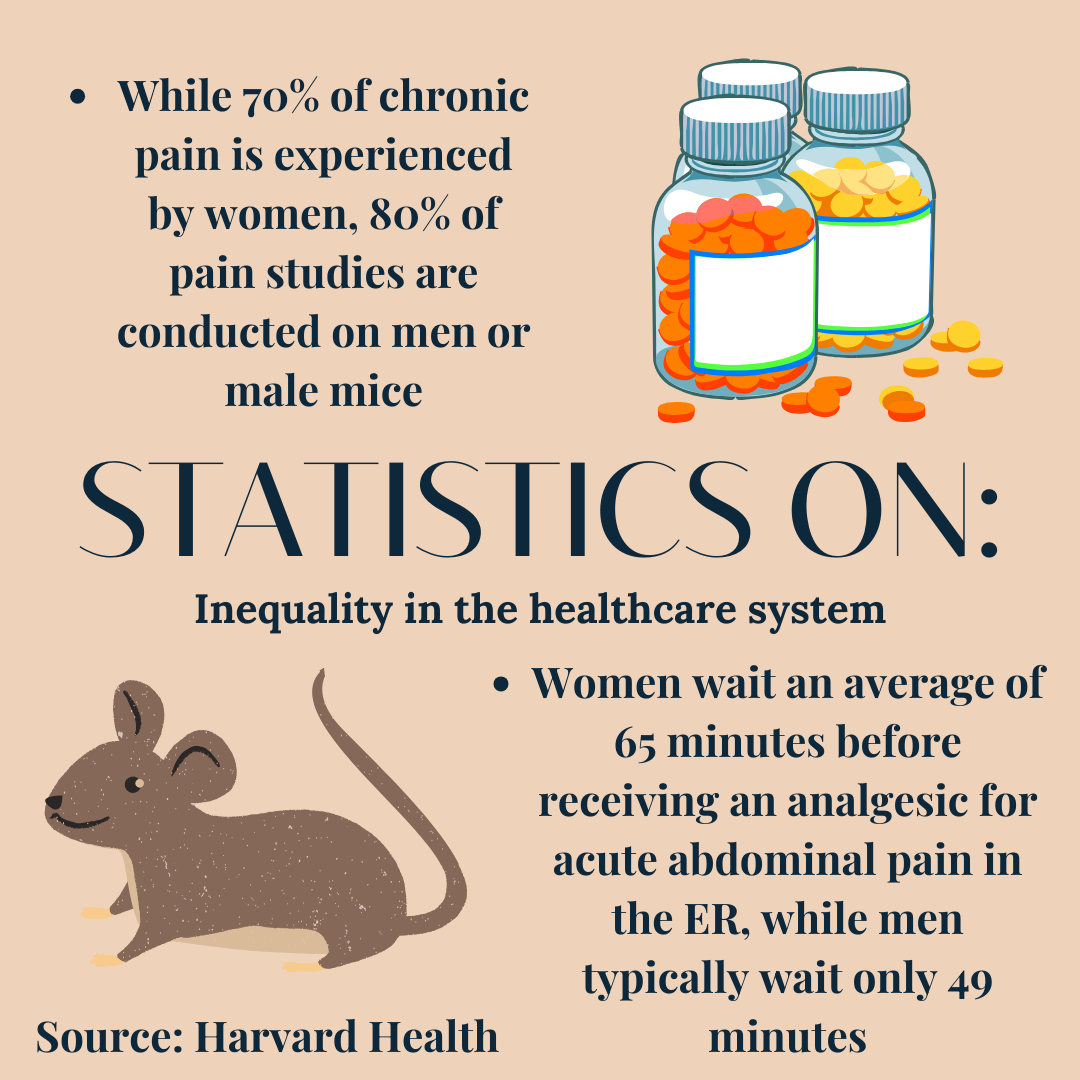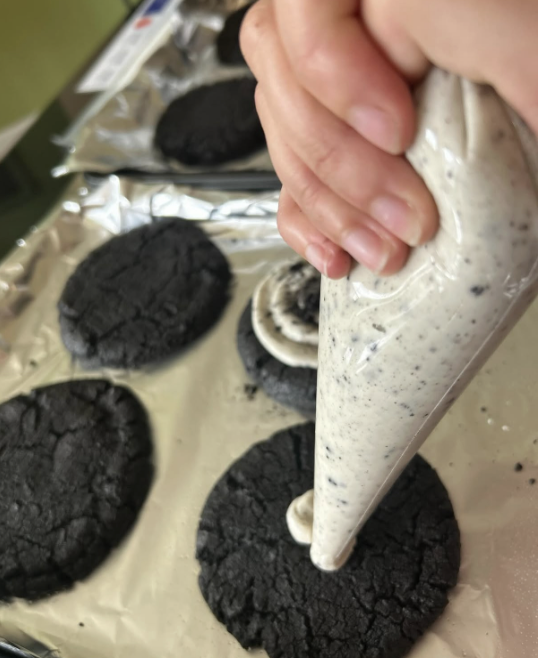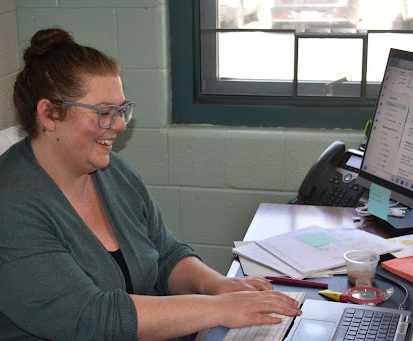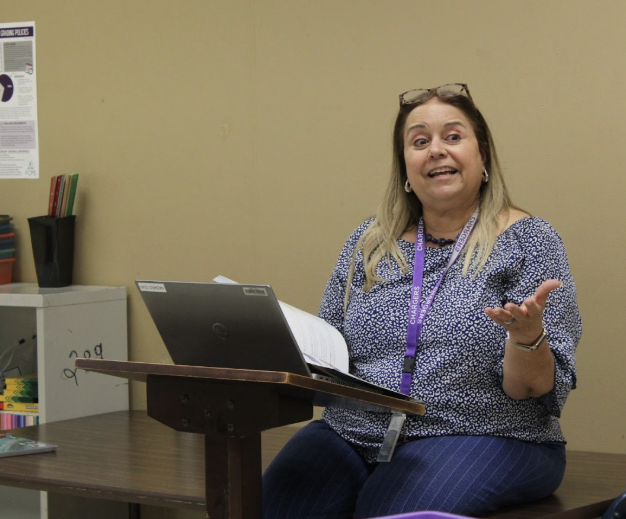From the discovery of penicillin in 1928 to advancements in mRNA technology that may enable the development of vaccines for diseases that are difficult to prevent, innovations in medicine have paved the way for a more effective healthcare system; in spite of such progress, a survey conducted by the Wellbeing of Women charity revealed over 56% of women feel their pain is ignored or dismissed by healthcare professionals.
“If you look at it historically, women are thought of as hysterical,” practical nursing teacher Cynthia Holland said. “They’re thought of as not handling things well and being overly emotional, so I think people would tend to think maybe some of that would lend itself to overestimating their pain or overacting their pain, ultimately leading to the undertreatment of their pain.”
According to Harvard Health, most studies that are conducted on pain have primarily focused on men and the findings are typically applied broadly to all individuals, regardless of their gender or medical history. By doing so, researchers and healthcare professionals reinforce gender disparities, along with discounting the fact that women potentially experience pain more intensely than men do.
“People whose pain has been minimized are probably discouraged from seeking health care leading to further issues that go undiagnosed,” medical assistant senior Josiah Huang said. “That’s really similar to how people in lower income demographics tend to have a higher death rate in treatable cancers, because it progresses to a stage where it becomes untreatable. So people who invalidate women’s pain or tell them that they should just suck it up and deal with it, that’s toxic.”
The invalidation or undertreatment of female pain is not limited to the healthcare system; in fact, it begins with the normalization of period pain, even when such pain has the potential to negatively impact an individual’s daily functioning or may be a sign of an underlying disease.
“Women are not talking about menstruation, menopause, endometriosis, uterine acne and problems with childbirth,” Holland said. “Because for some reason, that’s just so much more uncomfortable for people to hear. If you’re going to go to a gym teacher and say ‘I’m sorry, I really don’t wanna participate today, my cramps are really bad’ they’re like ‘suck it up,’ since they think you’re either making it up or being dramatic.”
The Affordable Care Act is a health care law that protects females from discriminatory health insurance practices, working to make health coverage more affordable and health services in general more accessible. However, there are ultimately no practices or systems set in place to educate and reform misinformed or inaccurate notions surrounding female pain and how it should be acknowledged or treated. This can lead to potentially harmful and long-term consequences for females who have either had or continue to have their pain or concerns invalidated, dismissed or undertreated by the very healthcare professionals they entrust their continued health and well-being to.
“I’ve worked in the dental field and absolutely, the undertreatment of any procedure can lead to a more prolonged or underlying disease that you may not see at the moment, but 10, 15 or 20 years later, it will pop up again,” science teacher Nina Kauser said.
Furthermore, according to HealthyWomen, although it is widely known women experience more chronic pain conditions than men—including endometriosis, migraines or fibromyalgia—they are more likely than men to receive a sedative prescription instead of a prescription for painkillers.
As a result, women are actually being treated for anxiety disorders or other similar mental conditions, instead of having the root cause of their pain treated. Having their pain overlooked by healthcare professionals and other certified individuals can lead to women internalizing or perhaps even underestimating their own pain, something that can be fatal especially if their condition is more serious than they realize or if they are also suffering from underlying health conditions.
“It’s important that future doctors, nurses and healthcare workers are taught from the beginning the importance of treating patients equally and the importance of taking each patient’s word as they come,” intro to nursing senior Clarisse D’Costa said. “Even though it may be difficult, talking about how much someone is hurting is definitely something that’s more subjective.”
